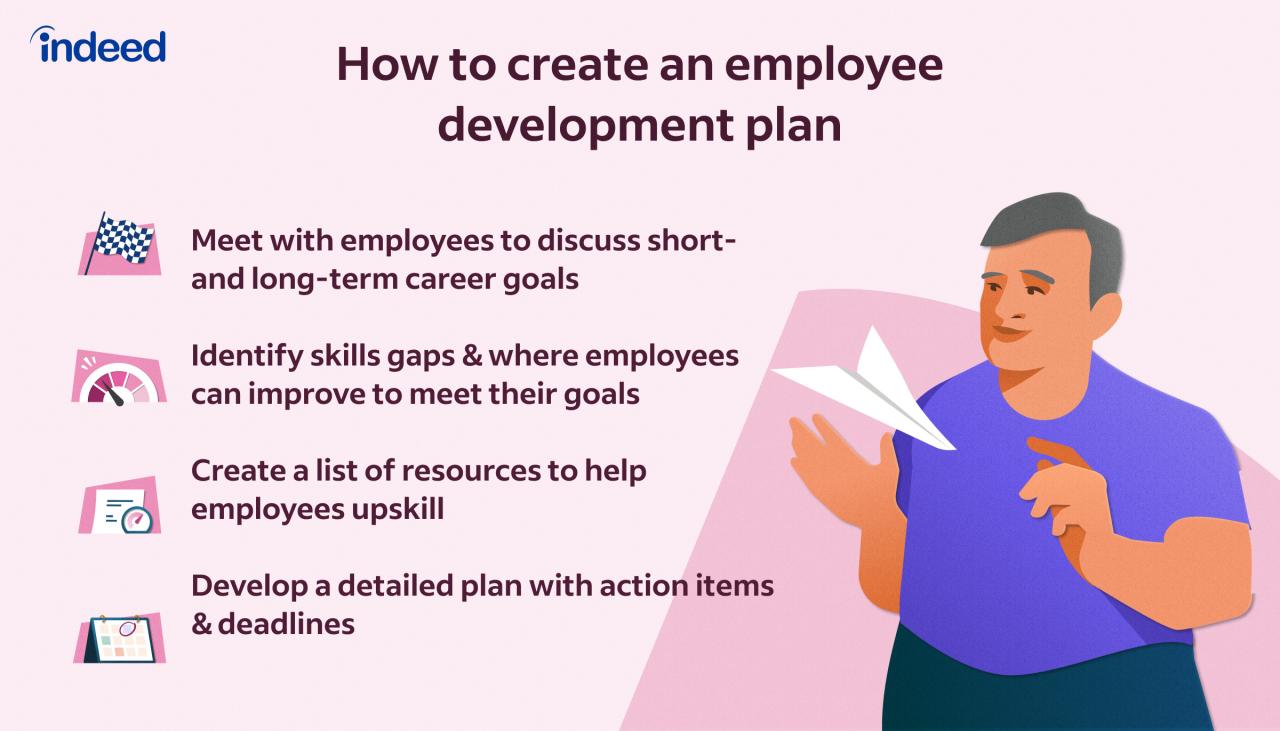Choosing the right IT courses based on career goals is crucial for success in the tech industry. This guide navigates you through the process, from identifying your ideal career path and researching relevant courses to building a compelling resume and advancing your career. We’ll explore various IT specializations, compare different learning methods, and help you make informed decisions to maximize your potential.
Picking the perfect IT course hinges on your career aspirations. Want to boost your cloud skills or dive into cybersecurity? Figure out your ideal path first! Then, check out resources offering affordable IT courses for professionals seeking upskilling to find something that fits your budget. Remember, the right course can seriously fast-track your career goals, so do your research and choose wisely!
The rapidly evolving IT landscape offers a plethora of exciting career opportunities, but choosing the right path can feel overwhelming. This guide provides a structured approach to selecting IT courses that align perfectly with your aspirations. We’ll cover everything from understanding different IT career paths and their skill requirements to evaluating the quality and relevance of various training programs. By the end, you’ll have a clear plan to launch your successful IT career.
Choosing the Right IT Courses Based on Career Goals
Navigating the world of IT courses can feel overwhelming. With countless options available, selecting the right path requires careful consideration of your career aspirations and personal learning style. This guide provides a structured approach to help you make informed decisions, aligning your education with your ideal IT career.
Identifying Career Goals in IT
The first step is to define your ideal IT career. The IT field is incredibly diverse, offering a wide range of specializations. Understanding these options will help you choose the most relevant courses.
- Software Developer: Designs, codes, tests, and debugs software applications. Requires strong programming skills (Java, Python, C++), problem-solving abilities, and understanding of software development methodologies (Agile, Waterfall).
- Network Engineer: Designs, implements, and maintains computer networks. Requires knowledge of networking protocols (TCP/IP, BGP), network security, and troubleshooting skills.
- Cybersecurity Analyst: Protects computer systems and networks from cyber threats. Requires knowledge of security protocols, intrusion detection systems, and vulnerability assessment techniques.
- Data Analyst: Collects, analyzes, and interprets data to provide insights for business decisions. Requires skills in data manipulation, statistical analysis, and data visualization tools.
- Database Administrator: Manages and maintains databases, ensuring data integrity and accessibility. Requires knowledge of database management systems (SQL, MySQL, Oracle), data modeling, and performance tuning.
A flowchart to aid in career decision-making could start with identifying personal interests (e.g., problem-solving, creativity, data analysis), then assessing aptitudes (e.g., logical thinking, attention to detail, communication skills). This would lead to exploring different IT career paths, considering required skills and responsibilities, and finally, selecting a suitable career path.
Picking the right IT courses is key to landing your dream tech job. Think about what you want to do – web dev, cybersecurity, data science? It’s all about planning! Just like the Nipissing Lakers women’s hockey team has high hopes for the upcoming season, you need a solid strategy. So research different IT career paths and choose courses that align with your ambitions – that’s how you score a winning career!
For example, a successful software developer might have a computer science degree, while a cybersecurity analyst might have a background in information security or a related field. These diverse paths highlight the flexibility within IT careers.
Researching IT Courses
Once you’ve identified a potential career path, research the relevant IT courses and certifications.
| Certification | Career Applications | Skills Covered | Typical Training |
|---|---|---|---|
| CompTIA A+ | Help Desk Technician, IT Support Specialist | Hardware troubleshooting, operating systems, basic networking | Online courses, bootcamps, self-study |
| CompTIA Network+ | Network Administrator, Network Technician | Networking fundamentals, TCP/IP, network security | Online courses, bootcamps, self-study |
| CompTIA Security+ | Security Analyst, Security Engineer | Network security, cryptography, risk management | Online courses, bootcamps, self-study |
| AWS Certified Solutions Architect | Cloud Architect, Cloud Engineer | AWS cloud services, designing and deploying applications on AWS | Online courses, AWS training, self-study |
Many IT courses emphasize practical skills through hands-on projects and labs, complementing theoretical knowledge. Reputable providers include Coursera, Udemy, edX (online), and local community colleges or universities (in-person). Online providers offer flexibility but may lack the personal interaction of in-person classes. In-person classes offer structured learning and interaction with instructors, but may be less flexible.
Aligning Courses with Career Goals

Choosing courses should directly support your chosen career path. For instance, aspiring software developers need programming courses, while cybersecurity analysts require courses focused on network security and ethical hacking.
Internships and practical experience are crucial. They provide valuable real-world skills and networking opportunities. A step-by-step plan could involve researching career paths, identifying required skills, selecting relevant courses, gaining practical experience through internships or personal projects, and building a strong portfolio.
Picking the right IT courses is key; your career path depends on it! Think about the future – for example, the electric vehicle market is booming, as you can see from this news about Rivian: Rivian stock has its best day ever after EV maker reports 2026. This growth means jobs in related fields like software engineering and data analytics are in high demand, so choose courses that align with those opportunities.
Evaluating Course Structure and Delivery, Choosing the right IT courses based on career goals

Learning modalities vary greatly. Self-paced online courses offer flexibility, while instructor-led classes provide structured learning and interaction. Bootcamps offer intensive, short-term training, but can be expensive and demanding.
When choosing a provider, consider factors such as accreditation, instructor expertise, student support, and curriculum relevance. A checklist could include assessing the course syllabus, instructor qualifications, student reviews, and the provider’s reputation.
Exploring Specialized IT Niches
Emerging fields like AI/ML, cloud computing, and blockchain offer exciting career prospects. AI/ML requires courses in machine learning algorithms, deep learning, and data science. Cloud computing needs training in cloud platforms (AWS, Azure, GCP), and blockchain necessitates understanding of distributed ledger technology and cryptography.
Professionals often transition into specialized roles by completing relevant certifications and building a portfolio of projects showcasing their new skills. For example, a network engineer might transition to a cloud security role by gaining AWS certifications and demonstrating experience in securing cloud environments.
Building a Strong IT Resume and Portfolio
Tailor your resume and portfolio to highlight skills and experiences gained from IT courses. Showcase projects demonstrating your abilities. Strong resume bullet points quantify accomplishments. For example, instead of “Developed web applications,” write “Developed three web applications using Java and Spring Boot, resulting in a 20% increase in user engagement.”
Networking and Career Advancement

Networking is crucial in IT. Attending industry events, joining professional organizations, and seeking mentorship provide valuable insights and opportunities. Continuous learning is essential in this rapidly evolving field. Staying updated with the latest technologies and trends is key to career advancement.
Last Point: Choosing The Right IT Courses Based On Career Goals
Landing your dream IT job starts with strategic course selection. By carefully considering your career goals, researching relevant courses, and building a strong professional network, you can position yourself for success in this dynamic field. Remember, continuous learning and adaptation are key to thriving in the ever-changing world of technology. So, start planning your IT journey today!
Commonly Asked Questions
What if I’m unsure about my IT career goals?
Start by exploring different IT roles and conducting self-assessments to identify your interests and strengths. Consider informational interviews with IT professionals to gain insights into various career paths.
How much does IT training cost?
Costs vary greatly depending on the course type (bootcamp, online course, university program), duration, and provider. Explore options ranging from free online resources to expensive intensive bootcamps.
Are online IT courses as effective as in-person classes?
Effectiveness depends on individual learning styles and course quality. Many excellent online courses offer flexible learning and are just as effective as in-person options. However, in-person classes can provide better networking opportunities.
How important is networking in the IT field?
Extremely important! Networking helps you discover job opportunities, gain mentorship, and learn from experienced professionals. Attend industry events, join online communities, and connect with people on LinkedIn.
